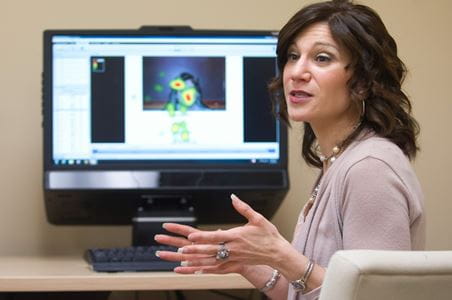Author
Sonder Collins
Having joined IU School of Medicine in 2016, Sonder uses a poetry and theatre background to bridge the academic world with the creative. A graduate of University of Evansville, he works with faculty, staff and trainees to create unique marketing ideas that connect the public to research, education and clinical initiatives taking place at IU School of Medicine. From writing stories on groundbreaking equipment to orchestrating digital marketing strategies, Sonder collaborates with experts across the school to help departments thrive in their marketing and communication ambitions. His specific area of focus is the Department of Radiology and Imaging Sciences and the Indiana Alzheimer's Disease Research Center.
The views expressed in this content represent the perspective and opinions of the author and may or may not represent the position of Indiana University School of Medicine.
